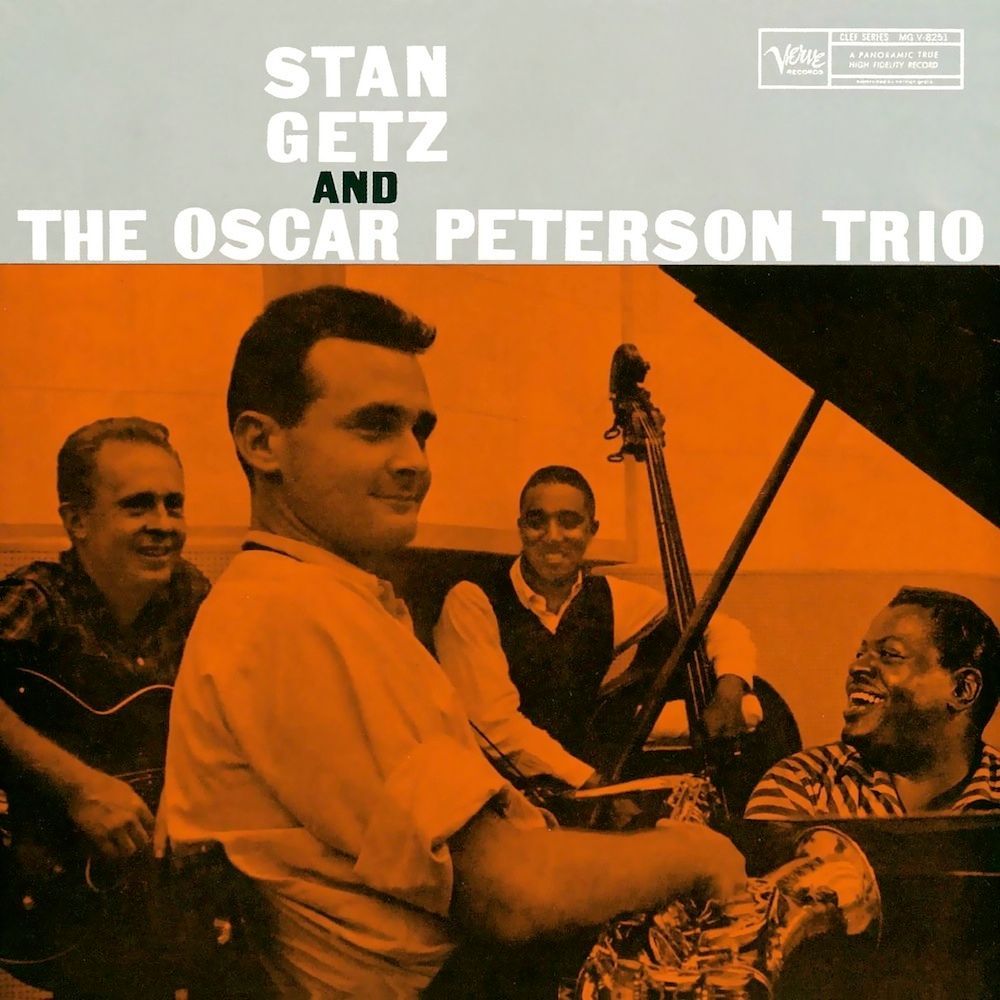In that quintessential breakthrough year of modern jazz -- 1957 -- Norman Granz was fond of pairing the legendary drummerless trio of Oscar Peterson with several different stars from the Jazz at the Philharmonic concert series. In this case, Stan Getz is the nominee, and Granz could not have found a better match for the pianist alongside his peerless combo than the ripe, mature, and bebopping tenor saxophonist. It was a one-shot deal, the only official collaboration between Getz and Peterson, expanded on this edition of the Silver Collection series with tracks from the complete session, with no alternate takes or bonus tracks and recorded entirely in monaural. Unlike Art Tatum -- who could never really restrain his notions to always cut loose -- Peterson sounds relatively relaxed on this date, understanding that Getz was also not going to shred up every tune they played. With guitarist Herb Ellis and bassist Ray Brown, the quartet members not only have all the rhythmic cohesion they need without a formal timekeeper, but interact in a way that approaches telepathic or magical. In short, the quartet is in the zone like few groups ever achieve in a studio setting. They zip through a bop-based edition of "I Want to Be Happy," a hopped-up adaptation of "Sweet Georgia Brown" titled "Tour's End," and the flawless "Three Little Words" like they are child's play. The strong Kansas City cum Texas-style guitar of Ellis cannot be denied during "Bronx Blues," while Getz reins in the countrified air of the jam in a laid-back but downtown fashion. During the great song (penned by Ellis) "Detour Ahead," heard here in an instrumental, post-Billie Holiday version, the ensemble shows ultimate flexibility, heightened by the tenor saxophonist's touching yet firm grasp of the melody. Aside from the closer, "Blues for Herky," with a choppy guitar from Ellis and a New Orleans-type feel, the rest of the material consists of ballads or midtempo cool tunes. This is where Peterson is most surprising, toning down his act, interpreting the songs with the precision of a diamond cutter, and using his acute listening skills to the fullest. Those bedazzled by the utter virtuosity of the pianist should listen more closely to this recording to hear how his taste level is as elevated as the monster technique he possesses. While "I Was Doing All Right" approaches a lounge sound, the five-tune "Ballad Medley" displays Peterson at his best, especially on his feature, "How Long Has This Been Going On." On this great album for the times and all time, these wonderful musicians are on from the word go, providing 60 priceless minutes of music that any mainstream jazz lover can embrace. ~ Michael G. Nastos
Tracks
1
I Want to Be Happy
07:37
2
Pennies From Heaven
05:19
3
Ballad Medley: Bewitched, Bothered, and Bewildered / I Don't Know Why I Just Do / How Long Has This Been Going On / I Can't Get Started / Polka Dots and Moonbeams
10:13
4
I'm Glad There Is You
04:41
5
Tour's End
04:58
6
I Was Doing All Right
04:11
7
Bronx Blues
05:34
8
Three Little Words
06:39
9
Detour Ahead
03:38
10
Sunday
06:11
11
Blues for Herky
03:45
